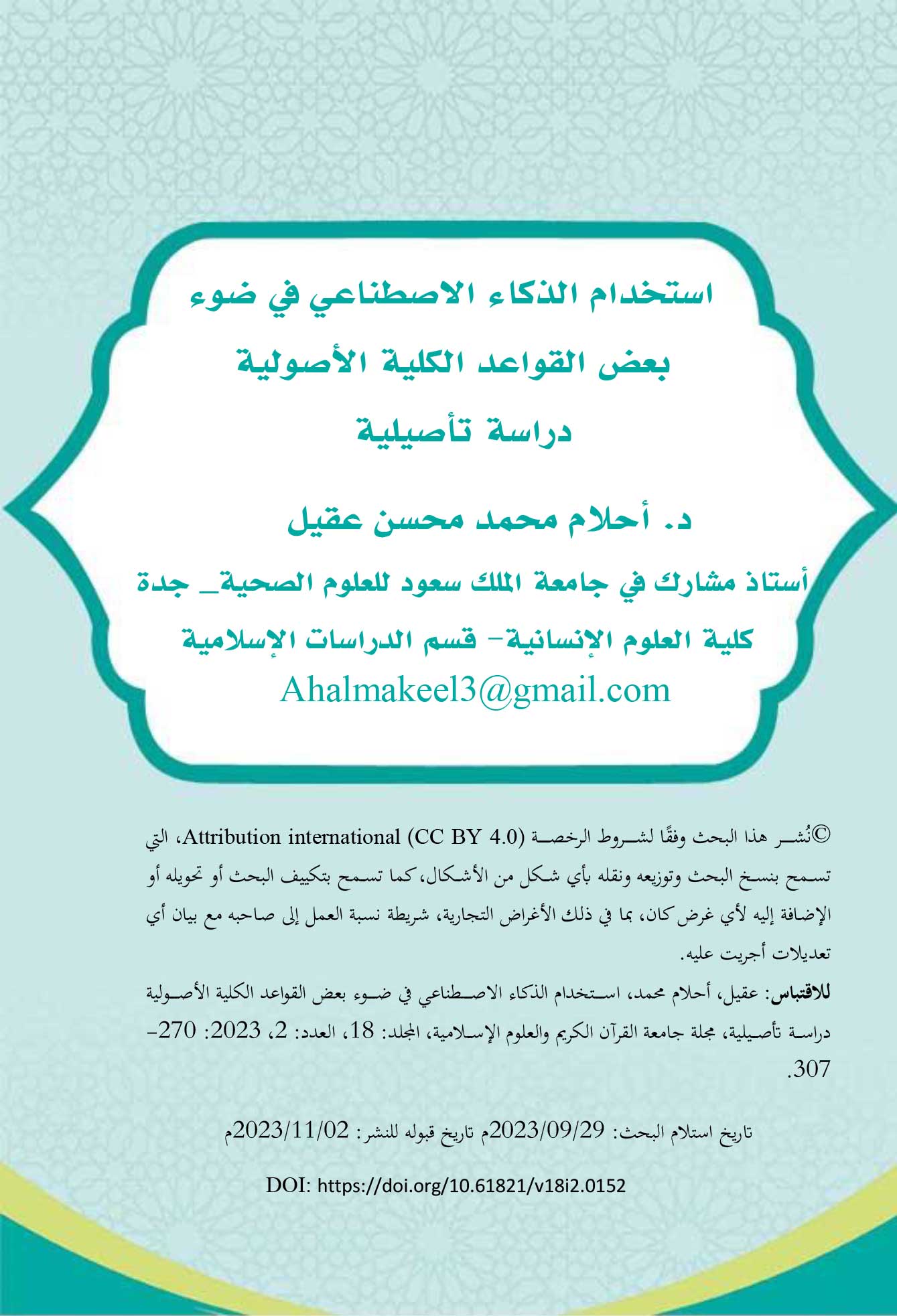The use of artificial intelligence according to some jurisprudential rules a fundamental study
DOI:
https://doi.org/10.61821/v18i2.0152Keywords:
Artificial intelligence uses, Islamic rules on AI, AI legality, AI harms, AI benefitsAbstract
This study focuses on the reasons for using artificial intelligence in scientific, and other aspects, and the extent to which this use is compatible with Islamic aspects, from the perspective of Fiqh fundamentals, and jurisprudential rules that can be rooted from Quran and the Sunnah. This is because AIS` use is generally spreading fast and wide. Therefore, it requires integrating this technology into many aspects of Islamic life, which necessarily means that this issue must be dealt with and rooted in. The researcher concluded that there is a connection and consistency between the need to use artificial intelligence and the objectives of Islamic law, according to two objectives, the first is: the objective of bringing benefits, and the second is: preventing harm that may result from AI use. As some Fiqh basis accommodate with the use of artificial intelligence, such as the rule: (hardship brings ease, the rule: harm is eliminated, and the rule of necessities permits prohibited things). However, it is necessary to conduct a comparative study of the use of artificial intelligence in Sharia according to preventing harm and bringing benefits. Study includes the forms of using artificial intelligence, and explaining the rules of Sharia on AI uses, such as changing images, audio and video clips, scientific studies and research, and others.
Key words: Artificial intelligence uses, Islamic rules on AI, AI legality, AI harms, AI benefits.
Downloads

Downloads
Published
Issue
Section
License
Copyright (c) 2023 Journal of the University of the Holy Quran and Islamic Sciences

This work is licensed under a Creative Commons Attribution 4.0 International License.
©This article is an open access article distributed under the terms and conditions of the Creative Commons Attribution (CC BY) license



